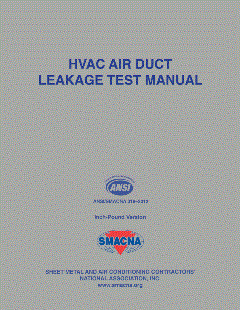HVAC without ductwork is like ice cream without a freezer: It just doesn’t work. Ductwork is a mandatory comfort delivery system. In fact, the only thing optional about it is whether or not HVAC contractors make their own fittings and duct runs. That piece of the ventilation machine is left not to chance, but to choice. A choice made by every contractor in the industry: “Should we fabricate ductwork and fittings in-house, or should we have someone else make what we need?”
TIME, ACCURACY, CUSTOMER SERVICE
Family owned and operated, V.M. O’Leary Sheet Metal and Heating in Cary, Illinois, has been in business since 1946, and they have been making their own sheet metal products for over 60 years.
Vincent O’Leary, president of the company, explained that there are three basic reasons contractors should have an in-house sheet metal fabricator: time, accuracy, and customer service.
Time, in any business, is precious. But in HVAC, waiting for ductwork and sheet metal fabrication can be detrimental to the company’s customer relationship. Accuracy of fittings and connections is important as well.
“With your own sheet metal shop in-house, you can quickly turn around products to custom specifications and adjust your inventory to the job with exact sizes,” said O’Leary. “Too many contractors modify and try to make prefabricated fittings just work. This is to the detriment of the end product.”
Time and accuracy can both affect a company’s level of customer service in positive ways, but same-day service is a real game changer. This added bonus acts as a differentiator and can pull a company ahead of the competition.
The three items necessary to start a sheet metal shop in-house are sheet metal, a licensed professional, and equipment.
When looking for sheet metal suppliers, O’Leary advises that contractors focus on quality, convenience, and price.
Choosing and hiring a licensed professional to create sheet metal products, on the other hand, is not as simple as sourcing the raw materials.
“You need to have a person who can actually make the sheet metal into a product,” said O’Leary. “This normally takes three to four years of on-the-job and classroom training.”
And no matter how experienced the licensed professional is, the job cannot be done without the proper equipment. According to O’Leary, costs to acquire the equipment and tools needed start at $15,000 to $20,000 for a small shop.
He feels it is a shame that more contractors don’t do their own sheet metal work but understands there are diverse reasons for each contractor’s choice.
“If you can’t have your own in-house sheet metal fabrication shop, then make sure you give your fabrication service provider good drawings,” said O’Leary. “Knowing what you need and providing accurate measurements for the fittings you need will help save you time and money.”
PLASMA CUTTER
Since the late 1920s and early 1930s, Welsch Heating & Cooling Co. in St. Louis has succeeded in providing specialized sheet metal items.
“We previously did mostly new residential construction work, and the sheet metal fabrication was an absolute requirement,” said Butch Welsch, owner. “Even now that 60 percent of our work is service and replacement, we still use the sheet metal shop extensively.”
In his shop is a plasma cutting machine that lays out and cuts fittings with minimal time and maximum accuracy. Although expensive, Welsch noted the plasma cutter not only has speed and accuracy, but it also lays out fittings on the sheet in the best way possible, creating minimal waste. However, contractors looking to begin their own sheet metal shop don’t have to start at the plasma cutter level.
“To start a shop, I would recommend a good Pittsburgh lock machine, a 4- or 5-foot brake, and a training program for the individual who is going to be laying out the various fittings,” said Welsch. “If the contractor will be utilizing longer duct, a duct fabrication table is a good investment. If the contractor does require longer duct, then his brake may need to be an 8- or 10-foot length. These items would get contractors started, and depending upon the amount of business, they could then determine if a plasma fitting cutter is worthwhile.”
Sheet metal raw materials providers are becoming more common. According to Welsch, in almost every area, there are supply houses that can provide contractors with the materials needed. However, he explained that contractors must make sure the supplier will deliver the sheet metal in a form that they can accept upon shipment.
“I believe any contractor who wants to perform quality work needs to fabricate his sheet metal in-house,” said Welsch. “While there are fabrication shops out there, the timing required in the replacement typically does not allow their use. What we see is that our competitors purchase partially made fittings and then cut and adapt them to the situation. As we emphasize the quality of the work, we know we cannot provide that quality if we don’t fabricate our own fittings.”
In understanding that not all contractors will heed his advice to start an in-house sheet metal shop, he did have a few words to say on using an outside sheet metal provider.
Welsch emphasized that contractors need to partner with a company that actually understands the HVAC business and its time constraints.
“Customers today will not wait several days to have their systems replaced,” he said. “Therefore, the ability of the fabricator to provide quality pieces in a timely fashion is most important.”
Publication date: 10/15/2018
Want more HVAC industry news and information? Join The NEWS on Facebook, Twitter, and LinkedIn today!









